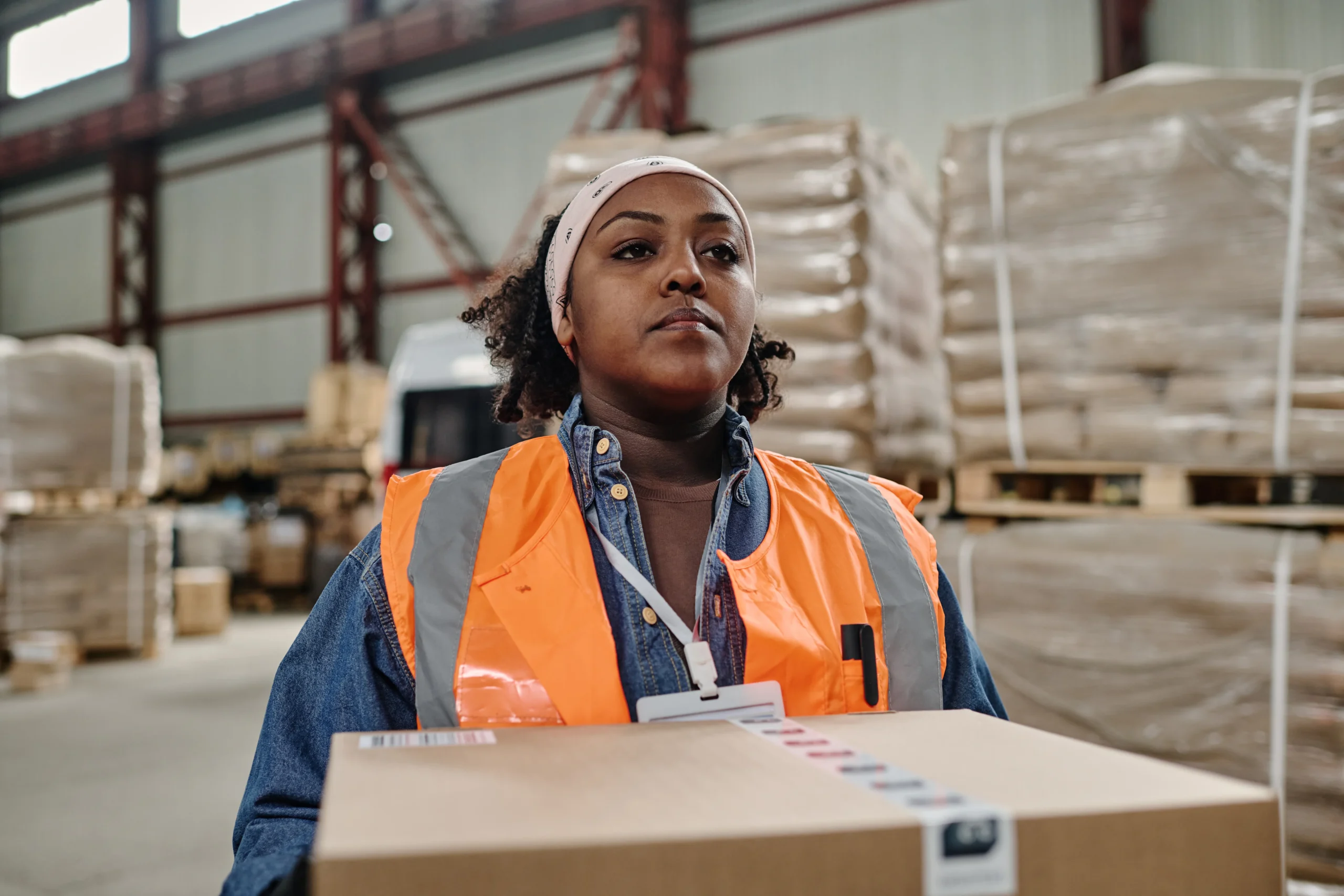Table of Contents
ToggleRegulated Industries Logistics involves the specialized management of supply chains in industries where strict government regulations dictate how goods are stored, transported, and distributed. These industries include pharmaceuticals, food products, consumer goods, and more.
The goal is not only to meet legal and compliance requirements but also to ensure efficiency, safety, and customer satisfaction. For businesses in these industries, logistics is more than just moving goods—it’s about adhering to complex rules while maintaining smooth operations.
At Tri-Link FTZ, we’ve spent over three decades perfecting logistics strategies for regulated industries. From managing sensitive pharmaceutical shipments to ensuring food safety compliance, our expertise has helped clients navigate these challenges effectively.

Logistics is the backbone of any regulated industry. It encompasses the entire process of moving products from their origin to the consumer while ensuring compliance at every step.
Industries like pharmaceuticals and food are especially vulnerable to disruptions because they deal with perishable or high-value goods. In these sectors, delays or errors can result in not only financial loss but also public health risks.
For example, in our work with pharmaceutical companies, maintaining proper storage conditions and adhering to Good Distribution Practices (GDP) are non-negotiable. Every shipment must meet temperature, humidity, and safety standards to ensure the integrity of the products.
The same goes for food logistics, where compliance with the Food Safety Modernization Act (FSMA) is critical. Customer expectations further complicate logistics.
In today’s world of instant gratification, customers expect faster deliveries and real-time tracking. Meeting these demands while navigating complex regulations is no small feat—but it’s a challenge we’ve embraced and mastered over the years.
Operating in regulated industries presents unique challenges that require careful planning and execution. Here are some of the most pressing issues businesses face:
Compliance with Regulations: Industries like pharmaceuticals and food are governed by numerous local, national, and international regulations. Keeping up with these requirements can be overwhelming, especially when they frequently change.
Data Management: Many companies still rely on outdated systems like spreadsheets to manage compliance data. This creates room for errors, which can lead to costly non-compliance fines.
Technology Adoption: While technologies like blockchain and IoT can revolutionize logistics, integrating them into existing systems is a challenge.
Environmental Regulations: Anti-idling laws, emission reduction requirements, and other environmental mandates add another layer of complexity.
Rising Costs: From fuel surcharges to labor expenses, managing costs while maintaining efficiency is a constant struggle.
At Tri-Link FTZ, we’ve tackled these challenges head-on by adopting innovative solutions. For example, we’ve implemented real-time tracking systems that not only improve visibility but also ensure compliance with regulatory standards. To read more click here.
Regulations vary depending on the industry and region, but some standards are universally critical. Here are a few that we frequently navigate for our clients:
Failure to comply with these regulations can result in hefty fines, legal issues, and damage to a company’s reputation. That’s why we prioritize compliance audits and regular updates to our processes.

To succeed in regulated industries, businesses need a strategic approach. Based on our experience, here are some proven methods:
We’ve seen firsthand how these strategies can transform supply chains. For instance, a pharmaceutical client of ours reduced their compliance-related errors by 30% after implementing our tailored logistics solutions. To read more click here.
Technology is revolutionizing logistics, particularly in regulated industries. Here’s how we use cutting-edge tools to improve operations:
At Tri-Link FTZ, we’ve integrated these technologies into our operations to deliver unparalleled service to our clients. Our investment in IoT sensors, for example, has significantly improved our ability to monitor perishable goods.
Managing risks is critical in regulated industries logistics. From cybersecurity threats to supply chain disruptions, businesses face various challenges that require proactive strategies.
One major concern is data breaches. Protecting sensitive customer and operational data is essential to maintaining trust and compliance with regulations like GDPR and ISO 27001.
At Tri-Link FTZ, we use robust cybersecurity measures to safeguard information, ensuring our clients’ peace of mind. Supply chain disruptions are another significant risk.
Whether caused by geopolitical events, natural disasters, or pandemics, these disruptions can halt operations and damage a company’s reputation. To mitigate these risks, we’ve developed contingency plans that include alternative transportation routes and partnerships with multiple suppliers.
Compliance failures also pose a risk. Missing a critical regulation update can result in fines and operational setbacks.
That’s why we prioritize regular compliance audits and use advanced tools to track regulatory changes. Lastly, reputational risks can arise from delivery delays or product damage.
By leveraging technology like IoT tracking, we ensure shipments are monitored in real time, reducing the chances of such issues.

Success in regulated industries logistics hinges on adopting best practices that streamline operations and enhance compliance. One of the most effective strategies is regular staff training.
Ensuring employees understand the latest regulations and operational protocols is key to maintaining efficiency and compliance. Continuous monitoring of performance metrics is another best practice.
Using key performance indicators (KPIs) allows companies to identify inefficiencies and address them promptly. For example, tracking on-time delivery rates and compliance scores has helped us optimize our operations at Tri-Link FTZ.
Documentation is equally critical. Comprehensive records ensure businesses are prepared for audits and demonstrate a commitment to regulatory standards.
Sustainability goals are also becoming increasingly important. By adopting energy-efficient practices and reducing emissions, companies can align with environmental regulations while enhancing their brand reputation.
Finally, maintaining a customer-centric approach is vital. Balancing cost efficiency with service quality ensures customer satisfaction, even in highly regulated environments.
At Tri-Link FTZ, we pride ourselves on delivering tailored solutions that meet both regulatory and customer requirements.
The logistics industry is evolving rapidly, with new trends and technologies shaping the future. One significant trend is sustainability.
Companies are increasingly adopting carbon-neutral practices, such as using electric vehicles and optimizing energy consumption, to meet environmental regulations and appeal to eco-conscious consumers. Advanced robotics and automation are also transforming logistics.
From automated warehouses to robotic picking systems, these innovations increase efficiency and reduce labor costs. Data-driven decision-making is another game-changer.
By analyzing vast amounts of data, businesses can predict demand, optimize inventory, and improve delivery times. Globalization has further complicated supply chains, requiring companies to navigate international trade regulations and tariffs.
At Tri-Link FTZ, our expertise in foreign trade zones has helped clients minimize costs and streamline international operations. Lastly, regulatory landscapes are becoming stricter.
Preparing for these changes requires a proactive approach, including regular training, audits, and investment in compliance tools. By staying ahead of these trends, businesses can remain competitive and compliant in an ever-changing industry.
Logistics for regulated industries is a complex yet critical aspect of modern supply chains. From pharmaceuticals to food products, ensuring compliance while maintaining operational efficiency requires a strategic approach.
At Tri-Link FTZ, we’ve spent over 35 years mastering the art of regulated industries logistics, helping our clients navigate challenges and seize opportunities. By adopting best practices, leveraging advanced technologies, and staying ahead of emerging trends, businesses can optimize their logistics operations and ensure compliance.
Whether you’re looking to enhance sustainability, improve risk management, or streamline operations, our team is here to help. If you’re ready to transform your logistics strategy, contact us today and discover why Tri-Link FTZ is a trusted leader in regulated industries logistics.
Share this article
We have other resources available upon request as well as one-on-one support and personalized answers, just like our services.
Simply contact us anytime and we’ll get back to you to answer your questions and provide meaningful answers that show you how Tri-Link supports your logistics, reduces costs, and accelerates efficiency.
Tri-Link delivers exceptional FTZ and 3PL services tailored to your global trade needs.
Our solutions combine innovation, quality, and efficiency to exceed your expectations and meet your specific requirements.